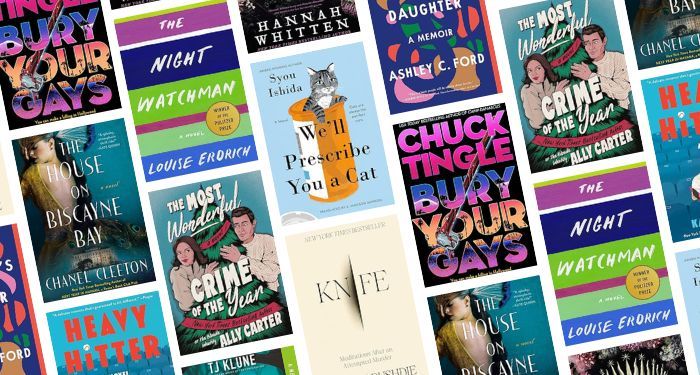
For decades, physician and author Silke Heimes has been leading groups in therapeutic exercises to put thoughts and feelings down on paper. Heimes, a professor of journalism at Darmstadt University of Applied Sciences, points to abundant evidence that writing for five to 20 minutes a day can improve health, diminish stress, increase self-confidence and even kindle the imagination. A writing routine, she argues, is a form of mental hygiene that almost anyone can benefit from.
So how do you start? What happens if—as every writer fears—the page remains blank? And how do you get rid of an overcritical inner censor? Heimes, director of the Institute for Creative and Therapeutic Writing in Darmstadt, explains how to overcome inhibitions and open up your inner world.
[An edited transcript of the interview follows.]
If you want to write in order to understand yourself better, what’s the best way to start?
There are writing exercises, for example in so-called fill-in journals, where you directly answer a question. But if I just want to get started without any aids, the best way is to use the method of automatic writing. That means I set myself a short time window, maybe five minutes, in which I write continuously without thinking, without putting down the pen or rereading what I’ve written. The goal is to get thoughts down on paper as unfiltered as possible so that an inner censor can’t switch on—or at least doesn’t get too loud. It helps not to set the goal too high—not to expect too much—but to understand this writing as a time-out, so to speak, or as a kind of warm-up exercise.
Wouldn’t it be helpful to ask yourself specific questions?
If you want to, you can follow programs that, for example, organize specific questions into topics. But that can also be inhibiting at times because such questions primarily get your head working to produce rational answers. Questions often steer thoughts along preconceived paths. Sometimes it is almost easier without them to let the gut lead the way.
What if you just can’t think of anything?
The half-sentence method can help. With this approach, you complete a given half-sentence such as “When I woke up this morning” or “What happened to me today.” If you write in the morning, the [first example] is a good choice. Because everyone wakes up in the morning, everyone can think of something to say about it. The same applies to [the second example] if you write in the evening because you inevitably experienced something during the day by then. To start, you can also write down words that begin with the letters of your name and then create a text using those words.
Can anything go wrong using these methods?
Not really. Just as with thinking, you can of course get tangled up in your own thoughts or get stuck in brooding loops when writing. But that’s not the fault of the writing itself; it’s just something that becomes obvious on paper. Writing often deals with emotional issues, so you also might temporarily feel bad because something is stirred up or triggered. In that case, you should take a break and do something else or talk to someone about it. If the feeling persists, it is best to seek professional help.
Does it make a difference whether you write by hand or on a keyboard?
Writing by hand is a very complex movement that activates more areas in the brain, which leads to being more creative. It also usually means slowing down, which invites you to pause and take a breath. In addition, there is something sensual and unique about writing by hand. because, for one thing, our handwriting is very individual. And for another thing, it tells us something about our state of mind. In fact, handwriting usually becomes rounder and livelier when we are in a good mood and smaller or tighter when we are not feeling so well. Typing on the keyboard, on the other hand has a soothing quality because it is very rhythmic. Further, it has the advantage of allowing you to share your writing more quickly. I think it’s always good to have both skills and to use them.
You have guided many groups in this type of writing. How does that typically work?
We first do little writing exercises to warm up. Many people come with the expectation that they’ll sit down, and the writing will flow right away—that they’ll perform brilliantly almost off the cuff. But no athlete, no musician would expect that of themselves. Professional writers know better.
And there are other common misconceptions. The biggest one is “I can’t write.” A lot of people come to my seminars with this attitude. But we can all write. Rather the problem is the often exaggerated demands we place on ourselves. I like to quote French writer André Breton, who invented automatic writing. He said, mutatis mutandis, that if you want to write, find a nice place, sit down in peace and quiet and forget about seeking out brilliant thoughts.
Is there anything else that people particularly struggle with when it comes to writing?
We’ve already talked about your own performance expectations. But what can also lead to inhibitions is the fear of emotions or of your personal history—fear of confronting possibly painful topics. And further problems usually arise when people want to put their thoughts into a literary form in order to publish them.
What if someone only produces platitudes? What if they sound banal or superficial?
Who decides that? That is a judgment that should be unacceptable in creative and therapeutic writing. Everyone expresses what is important, right and possible for them at that moment, and I think that is precisely what deserves appreciation.
What do people in your groups write about most often?
They write about the topic of self-worth—that is, the fear of not being good enough—about not being heard or seen and about the topic of freedom versus security, especially at work.
And what insights do they go home with?
That varies greatly. But they often take home a lot of pieces of paper, and that’s how they recognize that they can definitely write. They have produced something and are justifiably proud of it. This increases their self-esteem, and they develop more confidence. Writing also sharpens perception and promotes mindfulness. People notice more quickly when something is not good for them and find better ways to deal with those problems. And when thoughts go round in circles, putting them down on paper clears the mind. After that you have more capacity for other things in your life.
Can these benefits be probed empirically?
There are [hundreds] of studies on the effect of expressive or therapeutic writing. Many of them come from the psychologist James Pennebaker, who did research on this primarily with students.
Do you write a lot yourself?
Yes, every day. I work on a novel or nonfiction book every day, and I also jot down my thoughts for three minutes in the morning. These few minutes of mental hygiene are as important and natural to me as brushing my teeth every day.
This article originally appeared in Spektrum der Wissenschaft and was reproduced with permission.


























































